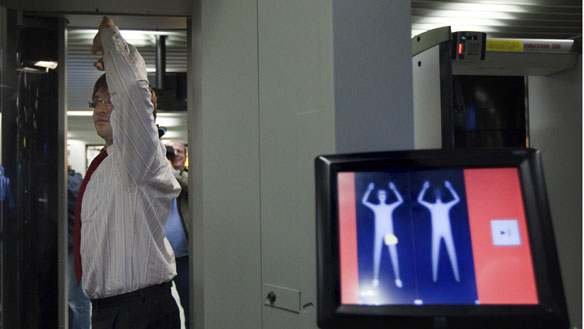High Officials Welcome Shen Yun Canadian Premiere
When Shen Yun Performing Arts opens its first show in Kitchener-Waterloo on Jan. 6, it will also be the cultural event’s Canadian premiere as it travels the world for its 2010 global tour.
The acclaimed classical Chinese performing arts company, which boasts three dance companies, two orchestras, and a host of leading artists including dancers, choreographers, singers, and composers, will grace the stage in 10 Canadian cities this year.
In January Shen Yun’s International Company will visit Ottawa, Montreal, Hamilton, and Toronto after its three-show run in Kitchener-Waterloo at Centre In The Square. In March and April it travels to Vancouver, Calgary, Edmonton, Regina, and Winnipeg.
Prime Minister Stephen Harper and Minister of Citizenship, Immigration and Multiculturalism Jason Kenney sent letters to congratulate Shen Yun’s Canadian tour, which includes 28 shows and expects to dazzle a total audience of 65,000.
Shen Yun also received warm greetings from local officials of the Kitchener-Waterloo area.
MP Stephen Woodworth of Kitchener Centre welcomed the artists and extended best wishes for a successful global tour.
“Shen Yun Performing Arts must be congratulated on their use of music and dance to bring the ideals of virtue, compassion and courage to international audiences,” Mr. Woodworth said.
“Their goal of building a more peaceful society through these performances must be commended and is one that we can all fully embrace.”
MP Gary Goodyear of Cambridge, Ontario, also sent greetings to the event organizers and patrons.
“This show is a truly breathtaking act that not only amazes but also educates men and women of all ages,” he said.
The metropolitan area encompassing the cities of Kitchener, Waterloo, and Cambridge in southern Ontario are known as the “tri-cities” and often referred to collectively as Kitchener-Waterloo.
“Our community is blessed to have the opportunity to be part of such a beautiful showcase of talent, history and culture through the world tour performance of Shen Yun,” MP Frank Valeriote of the nearby city of Guelph noted in a greetings letter.
“Shen Yun is a captivating way of sharing,” he said.
Dr. Ken Coates, Dean of the Faculty of Arts at the University of Waterloo, saw Shen Yun perform two years ago and said he “was truly impressed with the beauty, dignity and grace that the performers brought to the stage.”
“The Shen Yun presentation carries a powerful message of hope, reconciliation, joy and peace. It is a wonderful contribution to the spirit of the holidays and an inspiration for all of us for the New Year,” he said.
“Shen Yun reminds us of the timelessness and richness of Chinese culture. The performance also evokes the deep spirituality and wisdom of China,” added Dr. Coates.
Centre in the Square, located in Kitchener, features a multi-purpose concert hall with 2,047 permanent seats on three levels. The hall, designed to be acoustically perfect, has a state-of-the-art sound system and one of Canada’s largest orchestra pits, seating 110 musicians.
The Epoch Times is a proud sponsor of Shen Yun Performing Arts. For more information, please visitShenYunPerformingArts.org .
Take our FREE Online Assessment Today!
Socialize with Abrams & Krochak
Body scanners coming to Canadian airports
Body scanners will be installed in several Canadian airports to comply with new U.S. security protocols.
Federal Transportation Minister John Baird and Minister of State Rob Merrifield are due to make an announcement at 3 p.m. ET Tuesday on security at Canada’s airports.
CBC has confirmed that the machines, which can scan through clothing, be installed in Vancouver, Calgary, Edmonton, Winnipeg, Toronto, Ottawa, Montreal and Halifax.
The Canadian Press reported that 45 scanners will be installed in 11 airports over the next two months.
Meanwhile, the U.S. government could be looking at more airport security measures.
President Barack Obama is scheduled to speak in Washington, D.C., at 4 p.m. ET after a meeting with top security and intelligence officials.
The focus on security measures stems from the failed attempt by a Nigerian man to set off a bomb on a flight from Amsterdam to Detroit on Christmas Day.
Umar Farouk Abdulmutallab, 23, is accused of trying to ignite the bomb on the Northwest Airlines flight. Officials said he has told U.S. investigators he received training and instructions from al-Qaeda operatives in Yemen.
Transport Canada said Monday that the enhanced security measures on flights to the U.S. will remain in place until further notice. People flying into the U.S. are not allowed to bring carry-on bags into the cabin of the aircraft, with some exceptions, such as coats, medication and items for infant care.
Travellers to the U.S. from Yemen, Nigeria, Saudi Arabia and 11 other countries face full body pat-downs before boarding.
Obama is due to get an update from FBI director Robert Mueller on the state of the investigation, while U.S. Attorney General Eric Holder will brief the president on the prosecution, and Homeland Secretary Janet Napolitano will review terrorist detection techniques.
John Brennan, the president’s counterterrorism adviser, will update Obama on his own review of the terror watch-list system.
Take our FREE Online Assessment Today!
Socialize with Abrams & Krochak
Canada Bucks Global Trend on Immigration
Cold temperatures have not stopped Canada from being the warmest towards immigrants, in fact, making it the only country to buck a global trend towards lowering the gates.
In recent months, several European governments, including Spain, Ireland, Denmark and the Czech Republic, have paid immigrants enticing sums of money to go back to where they came from. Not Canada, though. The government has said it will continue to welcome a quarter-million new immigrants a year, but will conversely tighten the refugee determination system that is seen by many as too liberal.
With high unemployment and a large number of citizens on welfare in all of the so-called First World, admitting newcomers who are likely to contribute to both is seen as politically un-doable. Canada, however, is following a different tack. “We are planning for the economic recovery,” says a spokesperson for Immigration Minister Jason Kenney, alluding to several positive indicators that have surfaced in recent weeks foretelling an economy on the rebound. Compare this with Australia’s 15 per cent cut in immigrant intake in the wake of the economic downturn.
However, Ottawa’s stay-the-course approach is bound to be balanced by a tougher attitude to refugee applications, which were set to record a dramatic increase until the government stepped in with visa restrictions on travellers from the Czech Republic and Mexico. The fear of human smugglers taking advantage of a sympathetic refugee system took on new urgency in October when a batch of 76 Sri Lankan Tamils landed in British Columbia aboard a ramshackle freighter. Every one of them filed refugee applications, but few have made it beyond the gates of a detention centre as the government goes the extra mile to conduct background checks and ensure they are not Tamil Tiger guerrillas out to turn Toronto into an alternative capital for their grievances. In the words of a government spokesperson, “We can’t allow the creation of a two-tier immigration system: one tier for people who wait patiently and legally in the queue to come to Canada and another for profiteers, for those who engage the services of snakeheads and human trafficking groups.” Besides domestic pressure for a refugee screening system that is less prone to exploitation, American concerns over Canada serving as a backdoor into the US homeland has resulted in tougher questioning of applicants.
The overriding message to what the Economist recently called the world of “footloose talent” is that Canada remains open to immigrants, even at a time when Western economies stare at the prospect of sustained 10 per cent unemployment well into the next decade. To the Canadian mind, this is a myopic view that will prove counter-productive in the long term. The need for immigrants to replace an aging population and thereby ensure that there are always more workers paying into pension funds than retirees remains a paramount calculation. It may also be that a recession may not be a good time to cut back on immigrant intake, which has the desirable effect of transferring wealth from rich nations to the developing world.
This transfer is worth an annual $283 billion, but may be impacted if immigrants lose their jobs or there is a fall in the overall numbers gaining residence in industrialised nations. In a macro-economic sense, immigration has the unintended consequence of lifting families out of poverty thereby diminishing the “push” factors that drive people to flee their countries of birth.
But with many magnets for mobile human capital, Canada and its provinces are learning to be nimble in the pursuit of top talent. A recent instance was the relocation of 80 Indian IT consultants from Hartford, Connecticut, to two Atlantic cities — Charlottetown and Halifax — following the collapse of the Hyderabad-based Satyam Computer Services. Living in the US on work-dependent visas that were threatened following the troubles of the Indian computer giant, the governments of Prince Edward Island (PEI) and Nova Scotia are reported to have worked actively with a Canadian company to make a smooth switchover. Another factor that makes Canada an attractive home for immigrants is its religious tolerance. According to a recent study conducted by the Pew Center for Religion and Public Life, Canada ranks among the most tolerant on a global scale.
Not all is well, however. In Quebec, attitudes towards immigrants appear to be hardening, particularly among Francophones. No wonder that a recent immigrant from Algeria was overheard interpreting his rights, only half facetiously, in this fashion: children first, then women, then dogs … then men.
Take our FREE Online Assessment Today!
Socialize with Abrams & Krochak
Olympic torch light hearts on fire here and across this land
There was a remarkable outpouring of emotion in Stratford, Tavistock and Shakespeare on Sunday for the arrival, passing and departure of the Olympic torch.
So much so that we can beat our chests a little with civic pride in the belief that what happened here was a totally unique experience specific to this area.
It wasn’t, of course, and there have been similar, albeit not identical, reactions across the country as the torch enters and leaves communities both big and small.
That said, Day 59 will be remembered for a long time as the Market Square was packed with people and the city streets along the route were lined with everyday people as well as family and friends of torchbearers.
On the surface, one wonders what all the fuss is about, but that can be said about many things that pull at the heartstrings.
Maybe it’s because the Olympic Torch Relay appeals to us on several levels — one, as a localized community; two, as proud Canadians and, three, the realization that it will probably never happen again.
The torch run celebrates local accomplishments whether they be on the local or national scale. That was evidenced by the class from Stratford Central Secondary School that won the right to carry the torch after putting together a project that made life at Stratford’s oldest school a little better for those less fortunate.
Julia Wilkinson, Canada’s swimming sweetheart from the Beijing Olympics, had the signature leg of the torch relay here and lit the cauldron at city hall.
The incident in Guelph yesterday not withstanding, the Olympic flame also appeals to our national pride, and that’s why Maple Leafs abound and even impromptu renditions of “O Canada.”
There is also a sense of history too as it is very unlikely that an Olympic torch will pass through Stratford again in our lifetime. It is the second time it has gone through here in a generation, having gone through in 1988 before the Calgary Games, but there is no assurance it will happen again.
There is, of course, the mystical connection the torch has with the birthplace of the Olympics in Greece and to the opening ceremonies of the Games in Vancouver in February. It will be remarkable to see the flame lighting the cauldron at the XXI Olympic Winter Games in Vancouver when we know the same flame passed through our communities here.
Perhaps the Vancouver Olympics organizing committee knew there would be reactions like this across the country. One assumes Coca-Cola and RBC knew that as well as they signed on as corporate sponsors for such a feel-good event.
Regardless, it was a great day for the communites that experienced the torch relay Sunday. What is more remarkable is that same feeling is being experienced from sea to shining sea.
Take our FREE Online Assessment Today!
Socialize with Abrams & Krochak
Archives
- June 2025
- March 2025
- February 2025
- December 2024
- October 2024
- June 2024
- May 2024
- April 2024
- January 2024
- November 2023
- July 2023
- June 2023
- May 2023
- January 2023
- November 2022
- April 2022
- March 2022
- February 2022
- October 2021
- June 2021
- April 2021
- October 2020
- September 2020
- June 2020
- May 2020
- April 2020
- March 2020
- December 2019
- January 2019
- December 2018
- November 2018
- August 2018
- June 2018
- April 2018
- January 2018
- December 2017
- November 2017
- April 2017
- January 2017
- December 2016
- November 2016
- October 2016
- September 2016
- August 2016
- August 2015
- January 2015
- December 2014
- November 2014
- June 2014
- April 2014
- March 2014
- February 2014
- December 2013
- May 2013
- April 2013
- January 2013
- December 2012
- August 2012
- June 2012
- March 2012
- January 2012
- September 2011
- August 2011
- July 2011
- June 2011
- February 2011
- January 2011
- December 2010
- November 2010
- September 2010
- August 2010
- July 2010
- June 2010
- May 2010
- April 2010
- March 2010
- February 2010
- January 2010
- December 2009
- November 2009
- October 2009
- September 2009
- August 2009
- August 2008
- July 2008
- June 2008
- May 2008
- April 2008
- March 2008
- February 2008
- January 2008




